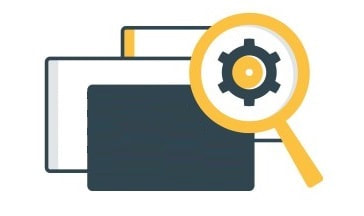Money Habits Keeping You in the Rat Race
Our guide reveals typical money habits and decisions that keep you in the 'Rat Race' and further away from financial freedom and independence. This guide is published to help you change behaviours and spending decisions.
Updated 14 June 2024
Summary
Know This First: The rat race isn't about working a 9-5 - that's perfectly normal and, for many people, a happy place to be. The rat race is about always chasing the next thing to give you a moment of happiness, escapism or a buzz, even when you know it won't satisfy you for long. It usually involves spending money to acquire something. Generally, the rat race is a situation where your values, hopes and plans get pushed aside by having to pay for the endless short-term buzzes that leave you feeling empty and wanting something else.
A 2023 study published in the NZ Herald suggested someone who earns $190,000+ in New Zealand achieves 'happiness). We read this 'research' cautiously; it's vague around whether or not the income is individual or household as it refers to both. While New Zealand has incredibly expensive houses relative to income levels, owning a home will give unparalleled financial security. However, for most, this will come with a 20+ year mortgage that absorbs a lot of after-tax income. This means a 9-5 job will be essential for most New Zealanders for most of their working life.
We have published this guide to help readers make better decisions and gain greater confidence in their ability to succeed and follow their dreams without losing focus or wasting money.
Related Guides:
Disclaimer: This guide has been inspired by and incorporates ideas and specific content from various social media sources, including a particular YouTube video. We attribute this guide's overarching theme and certain specific elements to these sources. The guide is intended for informational purposes and reflects a compilation of ideas gathered from these publicly available resources.
- Too many New Zealanders are stuck working jobs they don't enjoy and reluctantly trade their time for an income while their dreams drift further away. This is not an ideological observation - many 9-5' rat race' workers aren't fulfilled and wish they could control more of their time.
- In a New Zealand first, we have published this guide to explain why the 'rat race' exists and what everyday hard-working New Zealanders can do to create options that offer greater freedom.
Know This First: The rat race isn't about working a 9-5 - that's perfectly normal and, for many people, a happy place to be. The rat race is about always chasing the next thing to give you a moment of happiness, escapism or a buzz, even when you know it won't satisfy you for long. It usually involves spending money to acquire something. Generally, the rat race is a situation where your values, hopes and plans get pushed aside by having to pay for the endless short-term buzzes that leave you feeling empty and wanting something else.
A 2023 study published in the NZ Herald suggested someone who earns $190,000+ in New Zealand achieves 'happiness). We read this 'research' cautiously; it's vague around whether or not the income is individual or household as it refers to both. While New Zealand has incredibly expensive houses relative to income levels, owning a home will give unparalleled financial security. However, for most, this will come with a 20+ year mortgage that absorbs a lot of after-tax income. This means a 9-5 job will be essential for most New Zealanders for most of their working life.
We have published this guide to help readers make better decisions and gain greater confidence in their ability to succeed and follow their dreams without losing focus or wasting money.
Related Guides:
- 20 Indicators You're Doing Well Financially
- 20 Things to Stop Buying to Have More Money
- 20 Must-Know Money Lessons (Learned From Experience)
- 20 Money Habits that Keep You Poor
Disclaimer: This guide has been inspired by and incorporates ideas and specific content from various social media sources, including a particular YouTube video. We attribute this guide's overarching theme and certain specific elements to these sources. The guide is intended for informational purposes and reflects a compilation of ideas gathered from these publicly available resources.
MoneyHub Founder Christopher Walsh Explains Why We've Published this Guide:
|
I have personally navigated various financial avenues – from being an Airbnb (super)host to making strategic investments in dividend shares and KiwiSaver. My journey through financial landscapes has taught me the immense value of smart money management. This guide reflects my experiences, those shared by financial experts, and our collective knowledge at MoneyHub.
In creating this guide, I've drawn from my life lessons, such as the significant career leap I took after qualifying as a Chartered Accountant, which led to a substantial salary boost. I've learned the importance of cutting back on expenses that don't bring true happiness and have embraced the efficiency of public transport to minimise car expenses. These experiences are not just personal milestones but practical strategies anyone can apply to step out of the financial rut often referred to as the 'Rat Race.' This guide is not just a compilation of financial tips; it's a call to action for anyone who feels stuck in unfulfilling jobs, trading precious time for income, while their dreams drift away. This guide is published to show why this 'Rat Race' exists and offer practical, achievable steps to create options for greater freedom. I understand that the 'Rat Race' isn't solely about the grind of a 9-5 job. It's more about constantly pursuing short-term pleasures and material possessions that ultimately leave us unfulfilled. It's about the spending habits that divert us from our true values and long-term goals. Our guide aims to redirect this focus, helping you to make better financial decisions, gain confidence in your ability to succeed and follow your dreams without losing sight of what truly matters. From understanding the impact of lifestyle choices to the importance of financial literacy, this guide is a roadmap for anyone looking to break free from the constraints of the 'Rat Race' and move towards financial independence and freedom. This journey requires strength, sacrifice, hard choices and a willingness to change. Let's embark on this journey together, transforming our financial habits to create a life where our time and dreams are ours to control". |
Christopher Walsh
MoneyHub Founder |
Money Habits Keeping You in the Rat Race
Working for Less than You're WorthEmployers throughout New Zealand often pay their employees less than market rates. This is continuously observed on Reddit posts such as this example, and even though the job market has flattened off, underpaying is widespread. If you're loyal and stay with an employer for a few years, 2% or even 5% raises are still below inflation, and many employers will pay just enough to ensure their employees don't quit, given the costs and hassle of replacing and training. When they need to hire someone, there's no certainty that the job posting will go out with a salary that meets the market, given record immigration numbers since the borders reopened.
Accepting this state of affairs can keep you underpaid in a 9-5 routine with stunted career progression and lower income growth. New Zealanders who move to a competitor can get a 10% to 30% pay increase, more responsibility and leadership opportunities. The reality is that few employers are loyal, so it's up to the individual to make things happen for themselves. The anxiety of starting somewhere new quickly evaporates when you're earning more and are able to grow your investing and accelerate your financial goals. In essence, staying comfortable heightens your risk of being underpaid. |
Buying More Than You Need With a Fixed SalarySeveral money pits trap New Zealanders into long-term, expensive consumer debt. Arguably, the most ruthless is buying a new car on finance; it's expensive and keeps you working to pay for it. While interest rates can be as low as around 10%, a $30,000 or $40,000 car loan sucks up about $10,000+ a year of after-tax income if you sign up to pay it off over three years. A monthly payment may sound affordable, but the cost of living in New Zealand means a $ 200-a-week car repayment will be significant for most middle-income earners.
In a nutshell, too many people have cars they can't afford - someone on a $65,000 salary probably shouldn't be financing a $45,000 car. Before considering the finance costs, cars are huge money pits - insurance, fuel, parking, repairs, WOF and registration. Many hard-working people get trapped by working to keep a car running, which is all too often, at worst, unaffordable and, at best, a waste of money. Used Toyotas, Hondas, Suzukis, and other reliable Japanese cars are cheap to insure, repair, and keep on the roads. While they are not a status symbol in any way, many wealthy people drive them given their low financial demands. Home repayment costs are often another financial stress that keeps people trapped and unwilling to look beyond their 9-to-5. New Zealand uniquely has incredibly expensive homes, below-average incomes (compared to the price of the homes) and high interest rates. While owning a home in New Zealand is arguably essential to achieving financial security, balancing costs with value is critical. An extra $200,000 balance on a mortgage adds around $10,000 a year of repayments, which will likely cause additional financial stress for many first-home buyers. While location and convenience should always be a priority, it's unlikely the home you're buying will be your last, so if you can economise, make some compromises and lower expectations, additional financial pressure can be avoided by looking at entry range vs mid-tier for a first home (if possible). |
Relying on One Source of IncomeIf you're relying on a 9-5 income, you are arguably in a financial position where all the financial power is with the employer. The pandemic proved how quickly jobs can vanish, and with the rise of AI, the future for 9-5 employees is less certain. Having a secondary source of income is essential to give yourself financial power and freedom. Examples include:
|
Not Saving For Your RetirementMost working New Zealanders won't get super wealthy by working 9 to 5. However, investing over the long term is much easier and will ensure your retirement is comfortable. Too many New Zealanders have suspended their contributions to KiwiSaver or aren't even members. And those that do contribute regularly, for example, 9-5 employees, are arguably under-saving, given the minimum is 6% of an annual salary, which is far below the accepted level of retirement saving and much less than Australia's minimum (11%) where the living costs can be lower in many areas.
Money invested today will grow and look after you in the long term. Compound interest is a world wonder and looks after those who exploit it. Those who don't save (or reach retirement age with an unremarkable KiwiSaver balance) risk staying in 9-5 or part-time employment to top-up the regular NZ Super payments just to stay afloat. There's also an added risk of taking a Reverse Mortgage, which complicates retirement further if and when you need to move into residential care. KiwiSaver isn't a perfect solution, but it's a start and will help build wealth the more you contribute. Saving and investing outside of KiwiSaver also diversifies the risks and helps you build a nest egg, which allows you to make the financial choices you want to make, not decisions you have to make. Christopher shares his comments about reverse mortgages: "Reverse mortgages are convenient for people retiring who are asset rich but cash poor and unwilling to move home. If this could be you, it's not for anyone else to say how to spend your money and reverse mortgages give you 'your money' without hassle alongside a 10% p.a. interest rate, compounding. While this may ruffle feathers for adult children hoping for maximum inheritance with an 'uncompromised' house, your financial happiness and comfort must always come first. In no uncertain terms, it's your money and it is yours to enjoy. My reservations with reverse mortgages have nothing to do with inheritance issues; what can become a problem is having to finance residential care when your house is part-owned by the bank, which will need to be repaid first. This can leave you with much less money in the later stages of life than you expect". |
Consumption vs Production TrapsMany New Zealanders consume more than they produce, which creates credit card and personal loan debt, and it keeps growing, per this 2023 RNZ article.
Consuming more than you need is a trap that keeps you stuck in a 9-5 situation as the debts need to be serviced and repaid. The average personal debt balance in New Zealand is increasing, as outlined by this Reserve Bank data (including mortgage debt) and for many, it will take a long time to repay their debts. MoneyHub receives far too many emails from everyday New Zealanders who face near-impossible-to-pay-off credit card balances, which has prompted us to publish a dedicated guide. What does all of this mean? If money is leaving your bank account faster than it's coming in, you'll need to adjust your spending habits to make it balanced and further improve the situation by cutting costs to build up savings. It's too easy to spend money, but the debts created hold you back and keep you tied to working a 9-5 given the need to repay. |
Ignoring Financial LiteracyNew Zealanders invest time to ensure they're physically and mentally healthy, but few invest energy to become financially healthy. Financial wellbeing factors into being both happy and healthy, and endless tools and resources are free to boost financial confidence and overall happiness. It's perfectly normal in someone's 20s to focus on 'living life', but if you're in your 30s or 40s and not focused on being financially literate or growing your knowledge, the consequences on the rest of your life can become significant.
Despite government announcements and election promises, the basics are not taught in school. Things you should be aware of:
Know This: Many New Zealanders fear retirement because they have a 9-5 income but no control over where their money goes and without NZ Super won't replace the income they need to operate. It's essential to build your financial knowledge base as soon as possible. If you don't, you'll never escape the 9-5 and work well into retirement (unless you have sufficient savings or investments to support you). Our guide to free financial literacy classes and courses has more information. |
Doing What Everyone Else Is Doing'Keeping up with the Jones' is a cliché but, unfortunately, not uncommon throughout New Zealand. Advertising, social media, and peer pressure influence how we spend money, and many poor decisions are made to impress people and/or appear rich.
It's fine to buy things that make you happy, but if you're in a cycle of buying clothes, dinners out and big-ticket items such as cars to post on social media to 'keep up', that's something entirely different and is a financial drain. Such spending distracts from building wealth and making long-term decisions that grow to give you choices around how you spend your time. We're in a status-driven society, but it's artificial and doesn't bring long-term happiness for most players trapped in this no-win game. Those who brag the most about what they have often have credit card debts, personal loans, other debts, or worse (it's unfortunate that some, in rare cases, misappropriate employer money to fuel lifestyle spending). MoneyHub Founder Christopher Walsh comments: "I've seen far too much bad spending to last a lifetime. I've known people to lose their jobs and careers for siphoning off their employer's cash flow to pay for lifestyle spending and looking lavish on Instagram. I've known relationships that have broken up over too much personal debt, causing unimaginable stress. And then there are the debt traps that people can't get out of, the credit card bills that keep them up at night and the feeling that they will never be repaid. The force to consume is strong; for some, it's overpowering. But it must be resisted – in many cases, what's on offer is a waste of money. I firmly believe in spending on what makes you happy while having the confidence to say no to things that don't. It's not easy, and it means you can't 'have it all', but it does place you in a far better financial situation than the 'others' who don't or won't make the tough decisions". |
Falling for Lifestyle InflationAs individuals climb the career ladder and their salaries increase, their spending habits often escalate simultaneously, a phenomenon known as 'lifestyle inflation'. This cycle can be particularly enticing, as it's human nature to reward oneself with lifestyle upgrades – a bigger house, a newer car, or more exotic holidays – each time a pay rise is received. For example, ten days in Bali replaces Fiji before being upgraded to Hawaii and, later, the Seychelles or the Maldives.However, this pattern traps many in a cycle without room for significant savings or investment growth. Consequently, they remain perpetually dependent on their next paycheck, hindering substantial progress towards financial freedom. To escape this cycle, it's crucial to resist the temptation to spend every salary increase; instead, channel these additional funds into savings and investments.
|
Neglecting Emergency SavingsA worrying trend among New Zealanders is the lack of emergency savings, a crucial buffer against unforeseen financial shocks. This 2023 government study revealed the issue, and this commentary explains the issue further.
Having little or no savings is a big problem. When unexpected expenses – a broken car, washing machine, medical emergencies, urgent home repairs, or sudden job loss – occur, the lack of any savings or emergency funds usually forces hard-working New Zealanders into high-interest debt; credit card (least expensive), personal loans and, for some, payday loans. Having no savings can start a vicious cycle of debt that further cements a total reliance on a 9-5 job without the opportunities to switch roles, given the fear of losing everything if something misaligns or an existing employer finds out you're looking to move on. Our guide to establishing and maintaining an emergency fund is essential reading and should be a top financial priority. Even small, regular contributions can build a substantial reserve over time, offering a financial lifeline when needed. |
Failure to Plan for Financial MilestonesA lack of foresight in planning for key financial milestones is a common pitfall. Many New Zealanders fail to set targets for important life events like buying a home, saving for children's education, or preparing for retirement.
This absence of financial planning often increases pressure and reliance on a steady job to meet these large expenses. For these reasons, it's essential to take the time to think about setting clear financial goals and regularly reviewing progress towards these goals. In essence, your saving goals become aligned with a purpose, which makes them more personable and harder to deviate from, given that you understand the specific reason for the saving. |
Ignoring the Power of BudgetingUnderstanding where every dollar goes is critical to spending with purpose and consideration. The absence of a well-structured budget is a major financial oversight. With apps and online banking, it has never been easier to see where money is spent, control spending, save effectively, and invest wisely.
Whether you need an app that budgets your bills, alerts you when your bank balance is running low, or something to split bills, many budgeting apps are free, and all are available on iOS and Android devices. Our list of apps outlines them all. |
Underestimating the Impact of InflationMany in New Zealand underestimate the silent but steady erosion of their financial power due to inflation. Inflation diminishes the value of money over time, meaning that dollars saved today will be worth less in the future. This lack of awareness can decrease the real value of savings and investments, particularly if they're not growing at a rate that outpaces inflation. Understanding and planning for the impact of inflation is vital for long-term financial health.
|
Disregarding Health and Life Insurance (While Not Overpaying for Cover)Often, New Zealanders underestimate the importance of Health and Life insurance, only realising their value when it's too late. We're not advocating taking out a suite of insurance policies - too many New Zealanders over-insure and overpay for the benefits they receive.
Understanding the delicate balance between being adequately insured and avoiding over-insurance is critical for financial stability. Health and life insurance are fundamental components of a sound financial plan, providing security and peace of mind. However, the key is to tailor these insurances to your specific needs. Must-know steps include:
|
Not Understanding Investment Risks, Scams and OpportunitiesA common shortfall is a lack of understanding regarding investment risks and opportunities. Being too risk-averse will, for many, mean an inappropriate KiwiSaver fund selection or no KiwiSaver contributions altogether. Our dedicated guide to determining how aggressive a KiwiSaver fund should be helps explain this issue. It is designed to enable New Zealanders to invest their money better and have it work harder over the long term.
A gap in financial education can lead to overly cautious or risky financial behaviours, both of which have financial consequences. For example, since the rise of investing apps, share pick decisions have, for some, been disappointing. From the IPOs of hyped-up companies such as My Food Bag, All Birds and Cannasouth, resulting in around 90% of the investment being lost (based on the current share price vs IPO price), there's a lot of risk that's not widely understood. Several New Zealanders MoneyHub has heard from have shared their realised and unrealised share investment losses and have lost trust in investing. Some have shared that they now see Sharesies as a 'TAB-type app' and are reluctant to invest in general. Investing has risks, but there is a lot of long-term upside - the more you can invest, the less dependent you'll be on a 9-5 income as you age. Warning - Investing scams are rife throughout New Zealand: The FMA publishes a frequently updated list of scams targetting New Zealanders. This example of a fake term deposit comparison website is one example, but there are hundreds of others circulating right now. We suggest reading through the list and getting familiar with them - they come in all forms and are financially ruinous if successful, as this Herald article from 2023 explains. |
Ignoring the Benefits of Networking and Mentoring
|






















